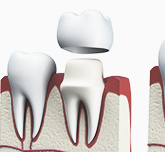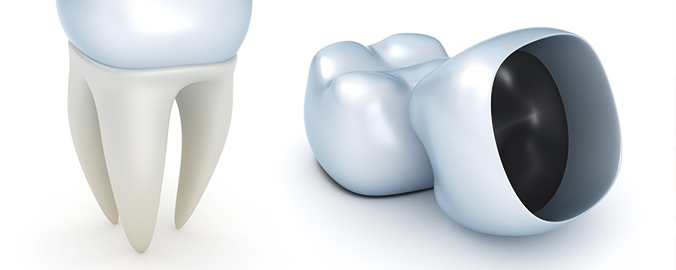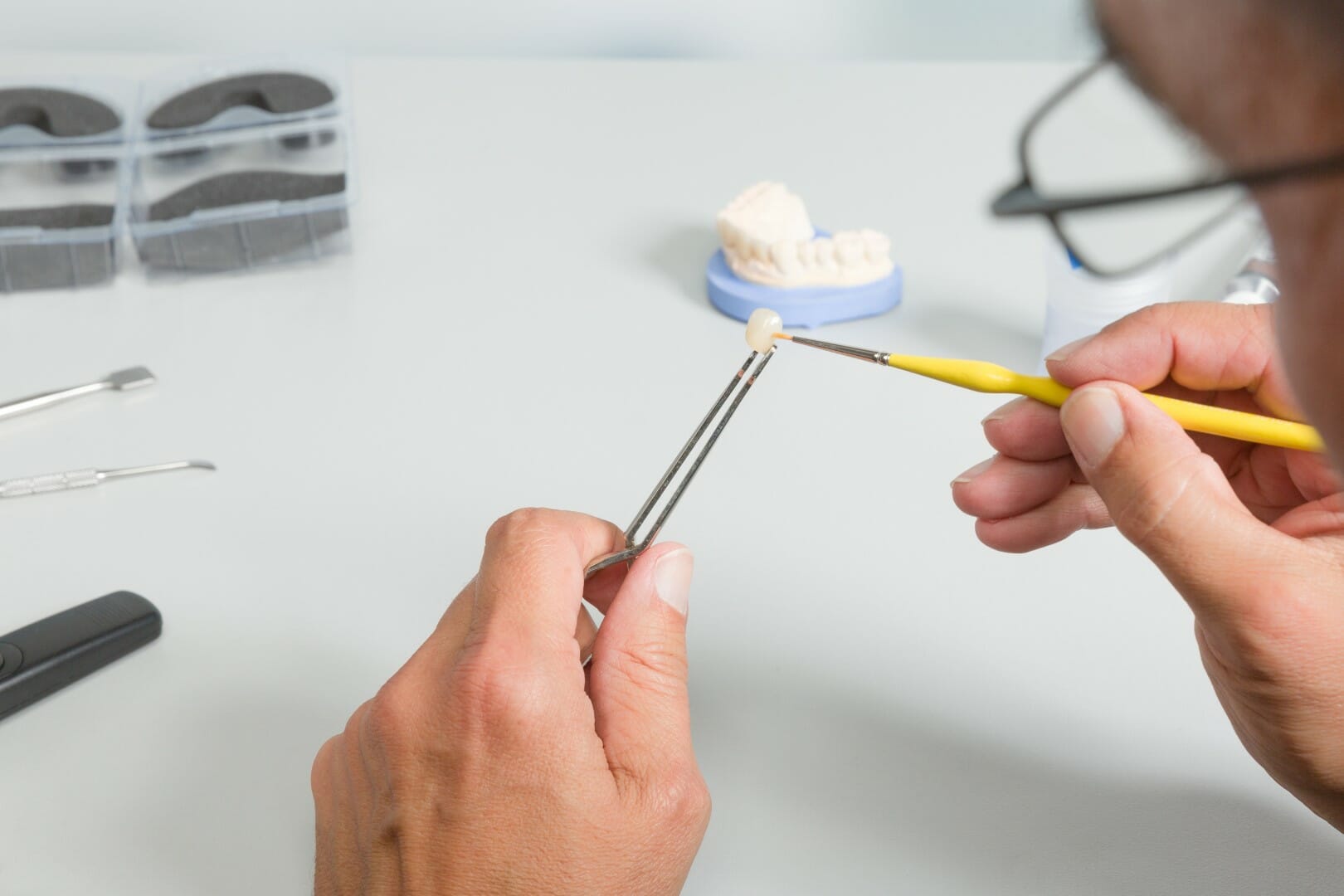What Is A Dental Crown?

A dental crown is a prosthetic covering which is cemented and fixed to either existing teeth, or if necessary, an implant which is embedded into the gum. Crowns are set securely and cannot be removed or taken out by yourself. Only a dentist can repair, replace, or remove a crown once it’s fixed.
A dental crown is made to look and feel like a real tooth and is generally made with a material which feels like a normal tooth, such as porcelain, ceramic, or even gold. The term ‘crown’ was coined as the device is like a cap (crown) which sits over a damaged tooth to give the appearance of a regular tooth sitting comfortably on the gum line, and is similar in strength and shape to the rest of the teeth.
Why Do I Need A Crown?
Even though the enamel protecting a tooth is the hardest substance in the human body, it can be damaged and broken beyond the repair of a regular filling. Teeth can be damaged by:
- Trauma, caused by an accident or fall
- Tooth decay
- Large fillings, either amalgam (silver), or tooth coloured (composite) become beyond repair
- Root canal treatment
- Age-related wear and tear
- Severe tooth discolouration
A dental crown becomes a hard, protective, tooth-shaped shell, which covers a damaged tooth or is anchored by a dental implant. Crowns are used more and more as our dietary choices change, and as we are an ageing population, we need our teeth for longer. A dental crown is the preferred option over dentures when only one tooth needs capping.
Different Types Of Crown
Dentistry is always advancing, and you can now get a dental crown which is the same shape, colour and density of your original tooth. They are made custom to each case and are undetectable to others.
There are four main types of dental crown:

Ceramic Crowns
Very popular choice as the ceramic can be colour matched to existing teeth, making them perfect for front, or visible teeth.

Porcelain
Also a very popular choice and can be fused to metal easily when more extensive work is needed. This ensures durability and strength, giving greater comfort.

Metal Alloy
These are the same as a gold dental crown, the only difference is that different metals are used, meaning your crown may be silver in colour instead of gold.

How Is A Dental Crown Fitted?
Having a dental crown fitted is a very custom procedure, and there is some preparation which is needed before the fitting can occur. Firstly, an X-ray will be taken to examine the jaw and teeth as a whole.
Unfortunately, for the crown to fit neatly and align with the rest of the teeth in your mouth, the damaged tooth will need to be reduced in size. This is usually done with a filing tool under anaesthetic. If the tooth is severely damaged, it may be removed and an implant embedded into the gum as an anchor for the crown. Once the implant is fitted, or the tooth is reduced in size, a mould is then taken.
The mould enables the dentist to create the right size and shape of the crown to match your other teeth. If you have a ceramic, or porcelain crown, your dentist will colour match your crown also.
While you wait for your custom made crown, a temporary crown will be fitted to protect the tooth, or implant, and fitted for your comfort while you wait for the permanent one. Once the permanent crown is ready to be fitted, the temporary one is removed, and the permanent crown is fitted to your tooth or implant.
How Long Does A Dental Crown Last?
An average lifespan of a crown can be 7-15 years, but well fitted and taken care of crowns can last a lifetime. However, in some instances they can become loose, break, or fall out. The key to your crown lasting as long as possible is good dental hygiene and regular checkups with your dentist.
What’s The Best Way To Care For My Crown?
Once your crown is settled in and secure, you can treat it just like any other tooth. The key to long-lasting crowns is to focus on your gums to reduce inflammation and gum disease. If your gums recede or become inflamed, the structure of the crown is compromised. Floss regularly, brush twice a day and take good care of your gums for a long and healthy dental crown.
